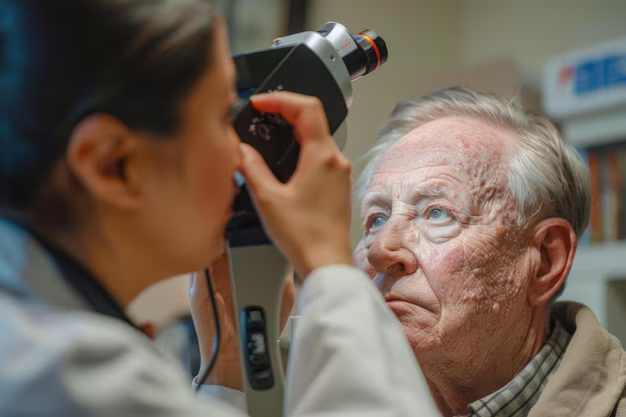Your Guide to Does Medicare Part b Cover Cataract Surgery
What You Get:
Free Guide
Free, helpful information about Medicare Insurance and related Does Medicare Part b Cover Cataract Surgery topics.
Helpful Information
Get clear and easy-to-understand details about Does Medicare Part b Cover Cataract Surgery topics and resources.
Personalized Offers
Answer a few optional questions to receive offers or information related to Medicare Insurance. The survey is optional and not required to access your free guide.
Understanding Medicare Part B and Cataract Surgery Coverage
Aging often brings changes to our bodies, including shifts in vision, with cataracts being one of the common conditions affecting seniors. Many older adults ponder a crucial question: Does Medicare Part B cover cataract surgery? The answer is yes, but with nuances that are vital for beneficiaries to understand.
What Medicare Part B Covers
Medicare Part B is primarily focused on outpatient medical services and care, including cataract surgery. When a doctor deems cataract surgery medically necessary, Part B generally covers 80% of the approved costs after the beneficiary has paid the annual deductible. This includes not only the surgical procedure itself but also preoperative and postoperative care. Importantly, Part B can also cover the cost of a basic intraocular lens (IOL).
Additional Considerations and Costs
Although Medicare Part B covers a significant portion, beneficiaries are often responsible for the remaining 20% of the Medicare-approved amount, and any additional costs if they opt for advanced technology lenses, such as multifocal or toric IOLs, which enhance vision beyond basic function. Some of these advanced lenses might not be fully covered, potentially adding to out-of-pocket expenses.
Here are a few key considerations:
- Standard IOL: Typically covered by Part B.
- Advanced Technology Lenses: Usually an additional cost.
- Facility Type: The surgery setting (hospital outpatient or ambulatory surgical center) can affect costs.
- Supplemental Insurance: Medigap policies might help cover some of these extra costs.
Exploring Financial Assistance Beyond Medicare
For those facing financial strain due to out-of-pocket expenses associated with cataract surgery, several resources can ease the burden:
- Medigap Plans: These supplemental policies help cover additional costs not paid by Medicare, significantly reducing out-of-pocket expenses.
- State Health Assistance: Programs like Medicare Savings Programs (MSP) assist low-income individuals in covering deductibles and premiums.
- Community Health Clinics: Nonprofit organizations and clinics sometimes offer surgeries at reduced rates or assist with payment plans.
Broader Support Systems
Understanding available financial resources is critical not just for surgical costs but also for managing overall health-related expenditures. Here are more solutions for those seeking financial equilibrium:
- Government Aid Programs: Federal initiatives like Medicaid provide additional health coverage for those with limited income.
- Debt Relief Options: Counseling services that guide individuals on managing medical debts.
- Educational Grants: Special programs might be available for seniors returning to education or skill training, offsetting living expenses.
Summary and Resources
Navigating healthcare costs, especially when unexpected, can be daunting. Here's a quick glance at additional resources to assist in your journey toward financial health:
- 🎖️ Medigap Plans: Helps cover costs not included in Medicare coverage.
- 💪 Medicaid: Provides health coverage for eligible individuals based on income.
- 📊 Government Aid Programs: Offers various forms of financial assistance and savings plans.
- 📚 Debt Relief Counseling: Guidance and strategies to manage medical debts.
- 🎓 Educational Opportunities: Grants and programs for continued learning or retraining.
Being informed and using available resources can provide both physical and financial vision, ensuring that necessary surgeries like those for cataracts don't become an overwhelming burden.
What You Get:
Free Medicare Insurance Guide
Free, helpful information about Does Medicare Part b Cover Cataract Surgery and related resources.

Helpful Information
Get clear, easy-to-understand details about Does Medicare Part b Cover Cataract Surgery topics.

Optional Personalized Offers
Answer a few optional questions to see offers or information related to Medicare Insurance. Participation is not required to get your free guide.


Discover More
- Am I Elgible For Medicare
- Am I Enrolled In Medicare
- Am I Qualified For Medicare
- Are Adult Diapers Covered By Medicare
- Are Chemotherapy Drugs Covered By Medicare Part d
- Are Colonoscopies Covered By Medicare
- Are Covid Tests Covered By Medicare
- Are Cpap Machines Covered By Medicare
- Are Cpap Supplies Covered By Medicare
- Are Dental Implants Covered By Medicare
